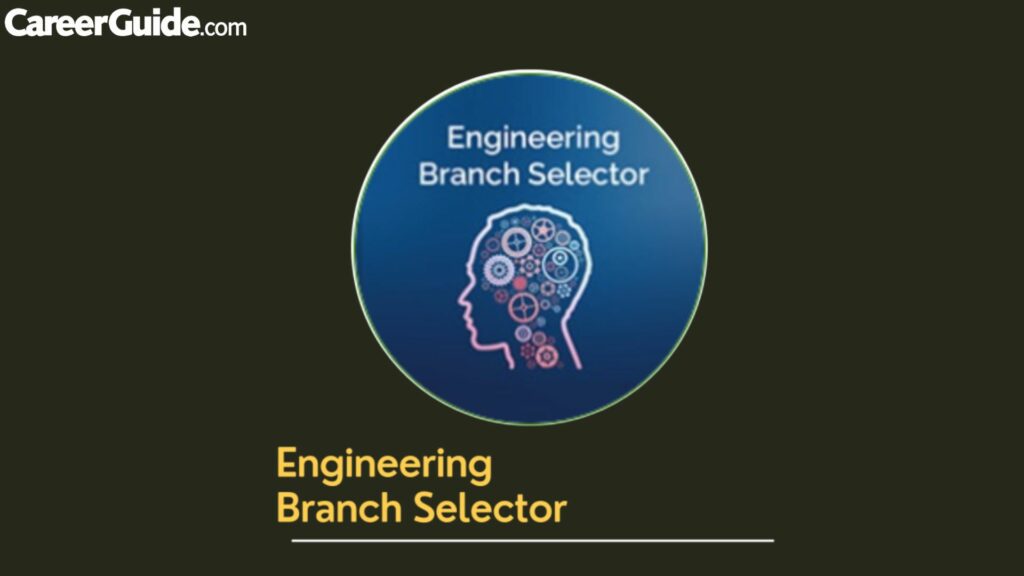College students, the most confused population of the youth about their career and with lot of doubts in the career selection in terms of future, financial stability, job acceptance, risks associated, and the list is never ending. With the world inching to a more globalised society every day, the career options are increasing exponentially which is definitely the better news but it does bring a whole lot of confusion with them and since many new age career options are less explored, the terms and conditions associated with them are yet to be discovered. Types Of Psychometric Tests For College Students. This discovery can be done through psychometric tests.
As opportunities are growing in all four major streams, their demands are widespread. Under this situation, Psychometric Tests could be the smartest choice to understand what all career falls under your areas of interests and what all career options have risk associated with it when seen in a long term prospective. This article will focus on the variety of Psychometric Tests that are open to college students and also the types of stream-based psychometric assessments which are available for both graduates and post graduates.
Ideal Career Test
The Ideal Career Test is a comprehensive assessment tool designed to assist individuals in identifying suitable career paths that align with their interests, skills, values, and personality traits. This test aims to provide valuable insights into the types of occupations and work environments that would be a good fit for an individual, helping them make informed decisions about their career choices.
The test begins by evaluating an individual’s interests and passions. It explores their preferences for various activities, hobbies, and subjects. This assessment helps identify areas that genuinely captivate the individual and can guide them towards career paths that align with their personal interests.
The assessment also evaluates an individual’s skills and aptitudes. It explores their strengths in different areas such as problem-solving, communication, creativity, leadership, and technical abilities. By understanding their skill set, individuals can identify careers that allow them to leverage their natural talents and develop their potential.
Another essential aspect of the Ideal Career Test is the evaluation of an individual’s values and work preferences. It explores their desired work-life balance, preferred work environment, level of independence, and desire for social interaction. Understanding these factors helps individuals find careers that match their values and provide a satisfying work experience.
Personality traits are also a crucial part of the assessment. The test explores an individual’s personality dimensions, such as extroversion/introversion, openness to new experiences, conscientiousness, emotional stability, and agreeableness. By considering their personality profile, individuals can identify careers that align with their temperament and work styles, as well as occupations that provide a conducive environment for personal growth and job satisfaction.
After completing the Ideal Career Test, individuals receive a detailed report outlining their interests, skills, values, personality traits, and recommended career paths. This report serves as a valuable resource for making informed decisions about career choices, setting realistic goals, and pursuing further education or training.
Engineering Branch Selector Test
The Engineering Branch Selector Test is a specialized assessment tool designed to assist individuals in exploring and identifying suitable branches or disciplines within the field of engineering. This test aims to evaluate an individual’s interests, skills, values, and personality traits specifically related to the various branches of engineering, providing valuable insights into potential career paths within this diverse and rapidly evolving field.
The test begins by assessing an individual’s interests in different areas of engineering, such as mechanical, electrical, civil, chemical, computer, or aerospace engineering. It explores their preferences for working with machines, structures, electronics, software, or specific applications. This assessment assists individuals in narrowing down their interests within engineering and identifying potential branches that align with their passion.
In addition to interests, the test evaluates an individual’s skills and aptitudes relevant to engineering. It examines their abilities in problem-solving, mathematical analysis, technical knowledge, design thinking, programming, or laboratory work. By understanding their skills within engineering, individuals can explore branches that allow them to leverage their strengths and contribute meaningfully to their chosen field.
The assessment also takes into account an individual’s values and work preferences within engineering. It explores their desired work environment, preferred level of hands-on work, teamwork dynamics, or potential areas of societal impact. Considering these factors helps individuals find engineering branches that align with their values, provide job satisfaction, and offer opportunities for professional growth.
Personality traits are another crucial aspect of the Engineering Branch Selector Test. It assesses dimensions such as logical thinking, attention to detail, creativity, problem-solving approach, and collaborative skills. By understanding their personality profile, individuals can identify engineering branches that align with their natural inclinations and work styles, fostering personal fulfillment and career success.
Upon completion of the Engineering Branch Selector Test, individuals receive a comprehensive report outlining their interests, skills, values, personality traits, and recommended engineering branches. This report serves as a valuable resource for making informed decisions about academic pursuits, such as choosing an engineering major or exploring specialized fields within the discipline.
Professional Skill Index
The Professional Skill Index (PSI) is a comprehensive assessment tool designed to evaluate and measure an individual’s professional skills across various dimensions. It provides a comprehensive overview of an individual’s strengths, areas for improvement, and potential areas of professional growth. The PSI is a valuable resource for individuals seeking to understand and enhance their skillset in order to excel in their careers.
The PSI evaluates a wide range of professional skills that are highly valued in the workplace. These skills may include communication, problem-solving, teamwork, leadership, adaptability, time management, critical thinking, creativity, emotional intelligence, and technological proficiency, among others. By assessing these skills, the PSI provides individuals with a clear understanding of their current skill level in each area.
The assessment process involves a combination of self-assessment and objective evaluation. Individuals may provide self-ratings for each skill, reflecting their perception of their own abilities. Additionally, feedback from peers, supervisors, or mentors may be collected to provide a more comprehensive and balanced assessment of an individual’s skills.
The PSI provides individuals with a detailed report that outlines their skill strengths and areas for improvement. This report may include suggestions for development opportunities, such as training programs, workshops, or mentorship. The PSI helps individuals prioritize their skill enhancement efforts and create a plan for professional growth.
Employers and organizations also find the PSI valuable for talent development and succession planning. By assessing the professional skills of their employees, employers can identify skill gaps within their workforce and design targeted training programs or reassign individuals to roles that align better with their strengths. The PSI enables organizations to optimize their talent pool and foster a culture of continuous learning and development.
Skill Based Career Test
A skill-based career test is a specialized assessment tool designed to help individuals identify career paths that align with their unique skills and abilities. This type of test focuses on evaluating an individual’s specific skill set, providing valuable insights into potential career options where those skills can be effectively applied.
The test begins by assessing a wide range of skills that are relevant to various professions and industries. These may include technical skills, such as programming, data analysis, or engineering, as well as soft skills, such as communication, problem-solving, leadership, or creativity. The assessment provides individuals with a comprehensive understanding of their skill strengths and areas for further development.
Based on the results of the assessment, the test generates a detailed report outlining potential career paths that match the individual’s skill profile. The report may provide information on industries, job roles, and specific occupations that require or value the assessed skills. This guidance helps individuals explore career options that are aligned with their natural aptitudes, maximizing their potential for success and job satisfaction.
Furthermore, the test may also provide recommendations for skill development or training opportunities to enhance existing skills or acquire new ones. This allows individuals to proactively pursue professional development activities that align with their career goals and enhance their marketability in their chosen field.
The skill-based career test is a valuable tool for individuals at various stages of their career journey. It can assist high school students in selecting educational paths that align with their skills, guide college students in choosing a major or specialization, and aid professionals in exploring career transitions or advancement opportunities.
It is important to note that the skill-based career test should be considered as one component of the career exploration process. It should be used in conjunction with personal introspection, research, and guidance from career counselors or mentors. Additionally, the test results should be evaluated alongside individual interests, values, and long-term career goals to make well-informed decisions.
FAQ About Types of Psychometric Tests for College Students
What are psychometric tests?
Psychometric tests for leadership are assessments used to evaluate the skills, traits, and potential of individuals in leadership roles. These tests can include a range of assessments, such as personality tests, cognitive ability tests, situational judgment tests, and emotional intelligence tests.
Psychometric tests are often used in college settings for various purposes. They can assist with career guidance, identifying students’ academic strengths and weaknesses, determining their aptitude for specific subjects, evaluating their personality traits, and providing insights for personal and professional development.
Psychometric tests can be administered in different formats. Some tests are completed online, allowing students to access them through a secure website. Other tests may be paper-based, where students fill out answer sheets or questionnaires. The administration method depends on the specific test and the resources available in the college or university.
The requirement to take psychometric tests varies among colleges and universities. Some institutions may include these assessments as part of their admission process or academic programs, while others might offer them as optional resources for students to explore their strengths and interests. It is best to check with your specific college or university to determine if psychometric tests are mandatory or optional.












